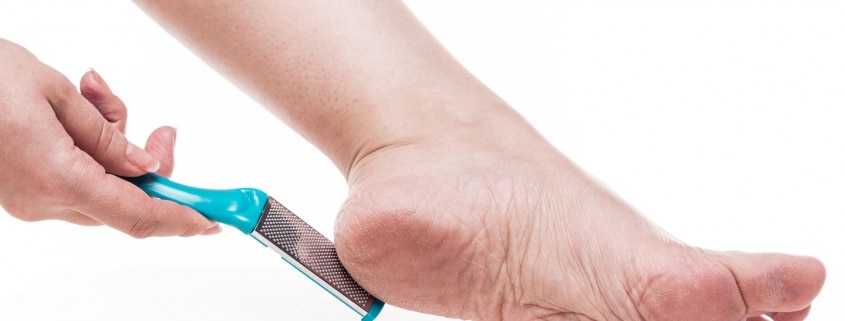How to Deal with Calluses as a Diabetic
With diabetes, you are more susceptible to problems with your feet, so taking care of them properly is an important part of your overall healthy lifestyle. Unfortunately, calluses can show up on your feet as a diabetic and cause discomfort and unsightliness. Take a look at some of the tips to deal with calluses as a diabetic and do so in a safe manner.
Talk to your doctor about calluses that are causing problems.
Speaking with a podiatrist about calluses that are causing you concern should be your first plan of action if you have diabetes. Calluses on a diabetic’s foot can show up faster and grow large faster than on a healthy person’s foot. These out-of-place mounds of skin tissue can put undue pressure on other parts of your feet when you walk or stand. If you have a callus that is causing pain, has developed rapidly, or is otherwise worrisome, get advice from a professional.
Never try to cut a callus off of your foot on your own.
It is perfectly OK to use a gentle pumice stone or another tool to slough away dead or dry skin on your callus, but do not do anything too harsh to your foot. Many patients with diabetes develop unsightly calluses and try to cut them off, which is dangerous. Cutting away a callus can lead to an open wound on your foot that can be prone to infection and slow to heal. While doctors often cut layers of a callus off in a clinical setting, this treatment is done with great care and caution to avoid creating an open wound.
Use foot soaks to help loosen and soften callused skin on your feet.
There is nothing more gentle on your feet than a nice long soak in warm water. If you have calluses that are peeling and look bad, it is fine to do long foot soaks in warm water to soften them a bit before using a pumice stone to slough away the skin. Just make sure you stay away from harsh chemical foot peels and extremely hot water that can cause your feet more harm than good.
Calluses can be a normal thing, but when you have diabetes, these skin changes on your feet can be concerning. Talk to us at the office of Jeffery LaMour, DPM, PA for more information about treatments we offer to help with calluses.








Leave a Reply
Want to join the discussion?Feel free to contribute!